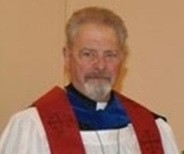 Henry VIII knew perfectly well that his break with Rome would not go over smoothly, in Rome. One of the reasons he did it was that the Popes over the years had used the Bishops in Britain as agents of Papal authority. Most kings in Europe had at least some input into Episcopal appointment, but an earlier English king had given that up, in order to get the then-Pope’s support for invading Ireland. By the 1500s, many British Bishops weren’t even English. Henry knew that he’d have a fight on his hands, if he left the clergy alone, and so he and Parliament wrote laws requiring everybody in the British Isles to swear an oath of loyalty to the king. This caused many clergy to flee to the mainland. Henry then appointed Bishops and Archbishops who were loyal to him.
Henry VIII knew perfectly well that his break with Rome would not go over smoothly, in Rome. One of the reasons he did it was that the Popes over the years had used the Bishops in Britain as agents of Papal authority. Most kings in Europe had at least some input into Episcopal appointment, but an earlier English king had given that up, in order to get the then-Pope’s support for invading Ireland. By the 1500s, many British Bishops weren’t even English. Henry knew that he’d have a fight on his hands, if he left the clergy alone, and so he and Parliament wrote laws requiring everybody in the British Isles to swear an oath of loyalty to the king. This caused many clergy to flee to the mainland. Henry then appointed Bishops and Archbishops who were loyal to him.
It seems obvious to us, though it may not have to Henry, that clergymen who were ready to renounce their ties to the Pope and Rome might very well already have leanings towards either Luther or Calvin. And, many did. It was only a matter of time before some of these feelings came out into the open. Among the first were Presbyterians. The word “Presbyterian” comes from the Greek “presbyter”, which translates the Hebrew word for “elder”. Traditionally (in fact ever since the First Century), the Christian Church has accepted three ranks, or “orders” of clergy: Bishops (Greek “episcopos”; see Paul’s letters to Timothy and Titus, and Peter’s first epistle), Presbyters (or “elders): (Greek “presbuteros”; used in virtually every book in the Bible), and Deacons (Greek “diakonos”, “waiter”; used in both Timothy and Philippians). Some conflated “presbyter” with “priest” (Greek “sacerdos”, “one who serves at the altar), but nowhere in the Bible are Christian clergy referred to by that name. It has been widely assumed that the English slurred the word “presbyter” and made it sound like “priest”. There have always been, of course, many other positions in the Church: Apostles, Disciples, Evangelists, Preachers, Teachers, and others, but Henry wanted to remain Catholic, so clergymen in “his” Church retained the three traditional titles: Bishop, Presbyter and Deacon. He even kept the two Archbishops who had always been in England: York and Canterbury. But, he put neither of them “in charge”. He was in charge. That remains true, today, and neither English Archbishop has any authority over Church of England bodies in other countries. The Anglican Church is not a multi-national Church. One of the founding tenets of it is that each national Church is independent, and sets its own path for achieving Anglican objectives. Nor is there necessarily only one “Anglican” Church in any given country. Even in England, not all Anglicans are “Church of England”! One of the fastest growing Churches there is the American body, the Anglican Catholic Church, which is even more “high church” than the C of E.
